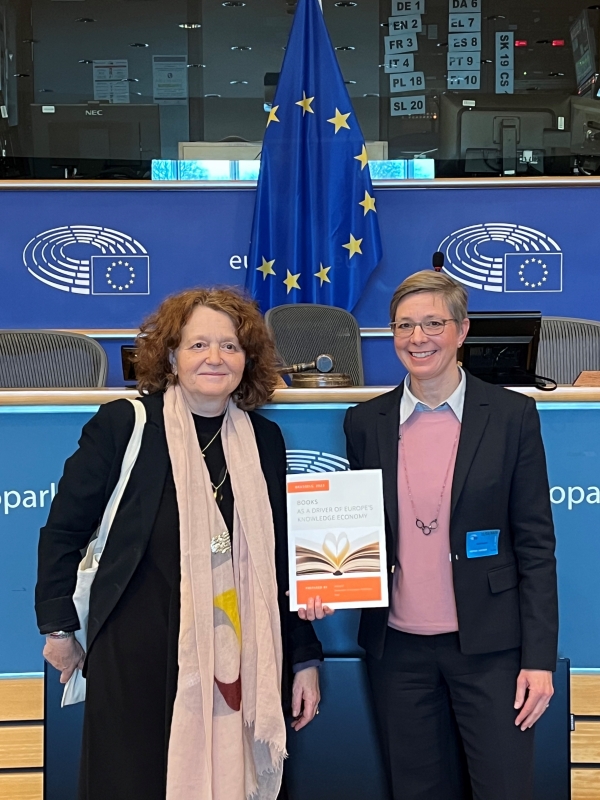BOOKS DRIVE EUROPE’S KNOWLEDGE ECONOMY
22 March 2023

Printed books must be included for a balanced information diet – both in our children’s schools and in our own lifelong learning efforts.
Books have enduring value as transmitters of knowledge, entertainment, and equality of access to information. Printed books offer the possibility to disconnect in today’s digital society. The book value chain also plays an important role in the economy, and physical bookshops and libraries remain important centres of culture.
Books are a fundamental resource that should be cherished, protected, and promoted. To celebrate the role that printed books play in our society, Cepi, Intergraf, and the Federation of European Publishers (FEP) have penned a joint statement: Books as a driver of Europe’s knowledge economy (view here). It presents the many benefits that books deliver.
“We welcome the opportunity to launch this joint statement at the European Parliament,” said Beatrice Klose, Secretary General of Intergraf. “The evidence in favour of printed books is overwhelming. We need MEPs to know about this so they can ensure the right mix of print and digital reading materials across our society.”
Anne Bergman-Tahon, Director of FEP states “FEP applauds the initiative of Tomasz Frankowski (MEP) for an own initiative opinion on the future of the European book sector. Publishers’ core mission is to publish books in the formats that best suit their readers’ needs and preferences. Print, digital and audio fulfil this wide range of requirements and it is essential to recognise the specific benefits of each format.”
“Who would have thought that, with the advent of a digital society, books would become so central to our mental health and relationship to knowledge. By allowing us to learn while ‘disconnected’ they are more than ever a product of the future, not the past.” said Jori Ringman, Director General of Cepi, the Confederation of European Paper Industries.
We call on European and national authorities to
- Celebrate the role of reading and books in the field of culture and education;
- Recognise the proven advantages of books in the development of critical thinking;
- Nurture bookshops for the important role they play in their local communities;
- Recognise the value of printed books as tools of inclusion and their role in protecting people without sufficient digital skills, tools, or access; older people; persons with disabilities; and others who are less online;
- Strive for the right mix of digital and print in the fields of entertainment and education, recognising the advantages of print for comprehension and learning;
- Support further independent research that measures the effects of digitalisation on reading performance and the development of other skills.
To download this press release in pdf click here.
ENDS
Intergraf (www.intergraf.eu) is the European printing industry association, representing employers in the graphical sector. We are a Brussels-based umbrella federation with 22 members from 21 countries and 11 Associate Members from across Europe. Our primary goal is to represent and advocate for Europe’s printing industry, working with European Union to support the sector’s competitiveness through advocacy, information-sharing, networking, social dialogue, and European projects.
The Federation of European Publishers (FEP) (www.fep-fee.eu) is an independent, non-commercial umbrella association of book publishers’ associations in the European Union. FEP represents 29 national associations of book publishers of the European Union and of the European Economic Area. We are the voice of the great majority of publishers in Europe.
Cepi (www.cepi.org) is the European association representing the paper industry. The paper value chain is the world champion in recycling at the rate of 71.4%. At the forefront of the decarbonisation and industrial transformation, the paper industry embraces digitalisation and brings 21 billion value addition to the European economy and €4.5 billion investments annually. Through its 18 national associations, Cepi gathers 490 companies operating 885 mills across Europe and directly employing more than 179,000 people.
{K2Splitter}





